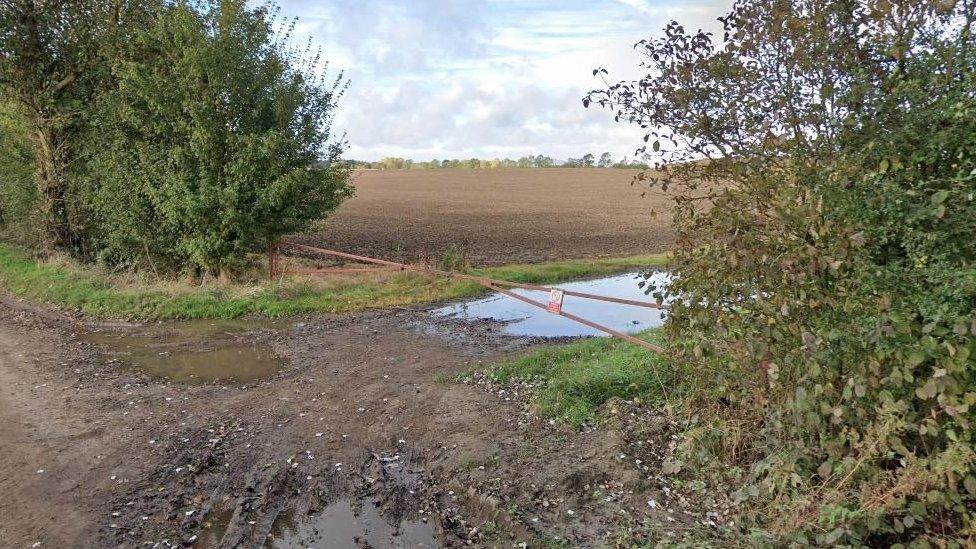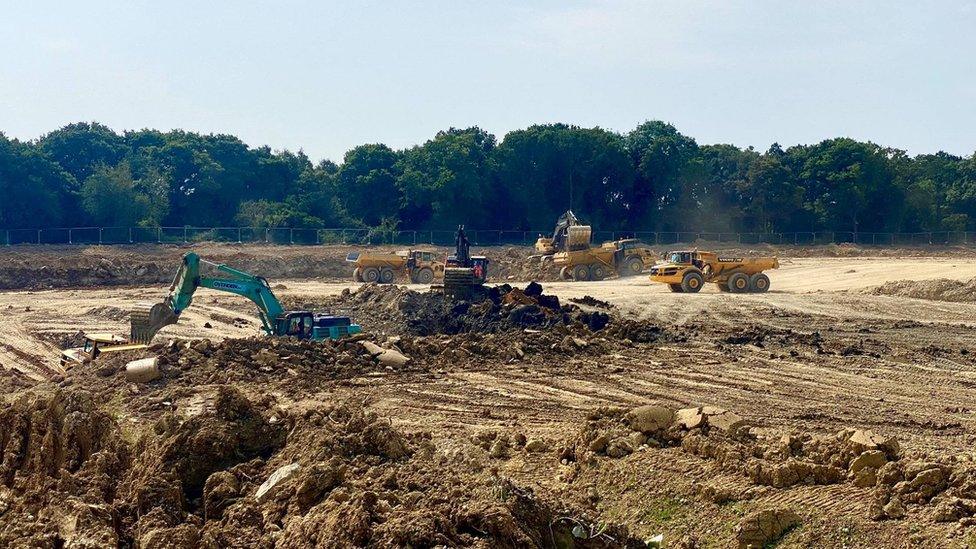Glentham: Anaerobic digestion plant set for approval
- Published

The development would use around 42,250 tonnes of material a year, most of which would be produced on the farm, to output 6.8MW of energy
Plans for a new anaerobic digestion plant in Lincolnshire are set to be approved by councillors, despite concerns over odours from the facility.
Glentham Agricultural Contractors proposal for an on-farm facility in Glentham, was originally approved by West Lindsey District Council in 2020.
However, rule changes regarding subsidies means the application will be decided at county council level.
A decision regarding the facility is expected to be made on Monday.
The development would use around 42,250 tonnes of material a year, most of which would be produced on the farm, to output 6.8MW of energy.
'Permanent odour'
Glentham Parish Council has not objected to the plans, but concerns were raised by a neighbouring authority.
Bishop Norton with Atterby Parish Council said: "Foul and acrid digestate odours from all directions are periodically experienced by villagers, albeit currently confined to field spreading events at closer or similar distances."
Residents have also noted that current smells are "extremely offensive".
"Concerns are therefore raised about the establishment of large lagoons of waste which could result in a new permanent presence of odour," the authority added.
However, officers have said that with pig manure instead being used to feed the plant rather than to fertilise fields odours could be "improved and reduced".
Concerns were also raised about traffic, according to the Local Democracy Reporting Service.
But officers said any increase in traffic movements would not have "an unacceptable impact" on the road network.
"The application would comply with the relevant policies," they said.
The previous application was based on the plant using 100% agricultural feedstocks, including maize, rye, and straw.
The rules regarding the qualification for subsidies has since changed, and now have a requirement that 50% of the energy must be produced using waste or residue feedstock.

Follow BBC East Yorkshire and Lincolnshire on Facebook, external, Twitter, external, and Instagram, external. Send your story ideas to yorkslincs.news@bbc.co.uk, external.
Related topics
- Published5 May 2022

- Published10 January 2022

- Published25 February 2022
